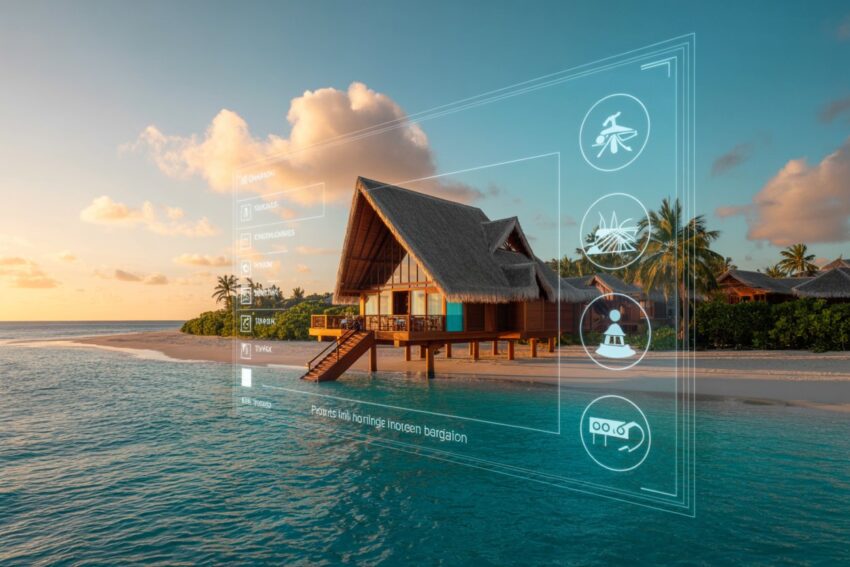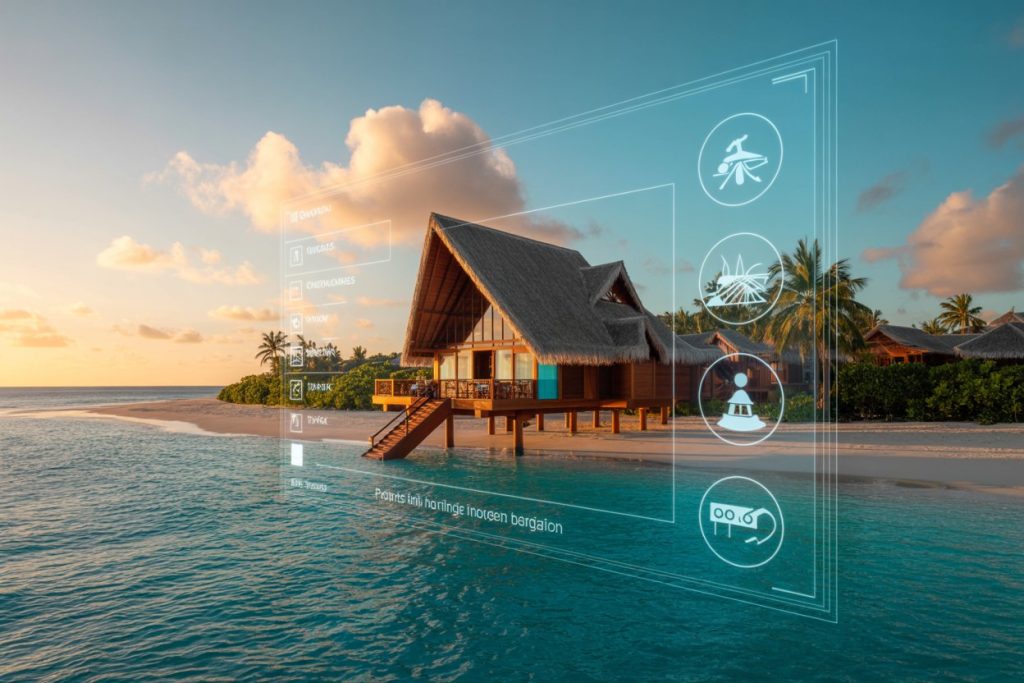Published on
September 17, 2025

AI in tourism is making waves in the travel industry, reshaping the way travelers plan, book, and experience their journeys. With its ability to offer personalized services, streamline operations, and enhance customer service, AI is setting a new standard for the tourism sector. From chatbots handling bookings to predictive systems anticipating traveler needs, artificial intelligence is transforming how businesses engage with their customers and operate in this fast-evolving market.
How AI in Tourism is Shaping the Travel Experience
As the global AI market is projected to surpass $1.84 trillion by 2030, the travel industry is quickly adopting artificial intelligence to stay competitive and meet rising customer expectations. AI in tourism is revolutionizing the way businesses in the sector interact with customers, offering tailor-made solutions that enhance the overall customer experience. AI tools such as generative AI and machine learning algorithms are providing travelers with more personalized options, allowing them to customize their trips based on personal preferences.
The impact of AI in tourism can be seen in the following key areas:
Personalized recommendations: AI algorithms use data to suggest destinations, activities, and accommodations based on individual preferences.
Smart booking systems: AI-powered systems streamline the booking process, making it faster and more efficient.
Chatbots and virtual assistants: These AI tools handle customer queries in real-time, improving response times and customer satisfaction.
The Growing Role of Generative AI in the Tourism Sector
Generative AI has emerged as a powerful tool within the tourism sector, enhancing the overall customer experience. Unlike traditional AI, which typically reacts to inputs, generative AI can create new content based on data, enabling more dynamic and engaging interactions. In the travel industry, generative AI is used to personalize itineraries, craft compelling travel content, and even simulate virtual experiences for travelers.
For example, generative AI can assist in designing unique travel packages, suggesting activities based on a traveler’s interests, and even producing personalized travel itineraries. This capability is particularly valuable in the tourism sector, where the demand for customized and personalized experiences is on the rise. By leveraging generative AI, businesses can stand out in a competitive market by offering unique, customer-focused services.
Improving Customer Experience with AI in Tourism
Incorporating AI in tourism significantly improves the overall customer experience by making interactions more personalized and efficient. With the help of predictive analytics and AI-driven tools, businesses can offer tailored recommendations and anticipate customer needs before they arise. This shift from reactive service to proactive engagement marks a major improvement in how the travel industry serves its customers.
Some of the key advantages of using AI in tourism to enhance customer experience include:
Anticipating customer needs: Predictive AI helps companies offer services before the customer even asks.
Personalized travel experiences: AI uses data to suggest travel experiences that are tailored to individual preferences.
Improved customer support: Chatbots and virtual assistants offer immediate, 24/7 support, improving response times and customer satisfaction.
These advancements in customer service not only boost traveler satisfaction but also help businesses build stronger relationships with their clients, encouraging repeat business and fostering brand loyalty.
Operational Efficiency in the Tourism Sector with AI
Beyond improving customer experience, AI in tourism is also driving greater efficiency within travel businesses. AI is particularly beneficial in managing and optimizing operations, whether it’s dynamic pricing, resource allocation, or predicting demand. By using AI tools, businesses can streamline their processes, reduce costs, and enhance their ability to meet the needs of travelers.
The use of AI to boost operational efficiency includes:
Dynamic pricing: AI models adjust prices in real time based on factors like demand, competition, and seasonal trends.
Demand forecasting: AI predicts customer demand, allowing companies to allocate resources more effectively and optimize capacity.
Automated services: AI-driven automation handles everything from check-ins to customer inquiries, reducing the workload on human staff.
With the travel industry increasingly relying on AI to handle repetitive tasks, companies are able to allocate more resources toward innovation and customer engagement, which ultimately helps them stay competitive.
The Future of Artificial Intelligence in the Travel Industry
Looking forward, the role of AI in tourism is expected to continue expanding, with even more sophisticated systems enhancing the way travelers and businesses interact. As artificial intelligence technology advances, the potential for deeper personalization and better service will only grow. From AI-powered virtual assistants providing real-time travel advice to AI-driven tools that offer personalized travel recommendations, the possibilities are endless.
The future of the tourism sector will likely be defined by its ability to leverage AI for more innovative and personalized solutions. As generative AI and other advanced technologies become more integrated into the industry, they will create new ways to enhance customer experience, improve operational efficiency, and offer new kinds of travel services.
Bottom Line
In conclusion, AI in tourism is not just a passing trend—it is a significant shift that is revolutionizing the travel industry. By using AI to personalize services, enhance customer experiences, and streamline operations, businesses in the tourism sector can stay ahead of the curve. As the technology continues to evolve, its potential to reshape the industry will only increase, creating more opportunities for both businesses and travelers alike. The integration of artificial intelligence in tourism is poised to redefine the way we explore the world.


